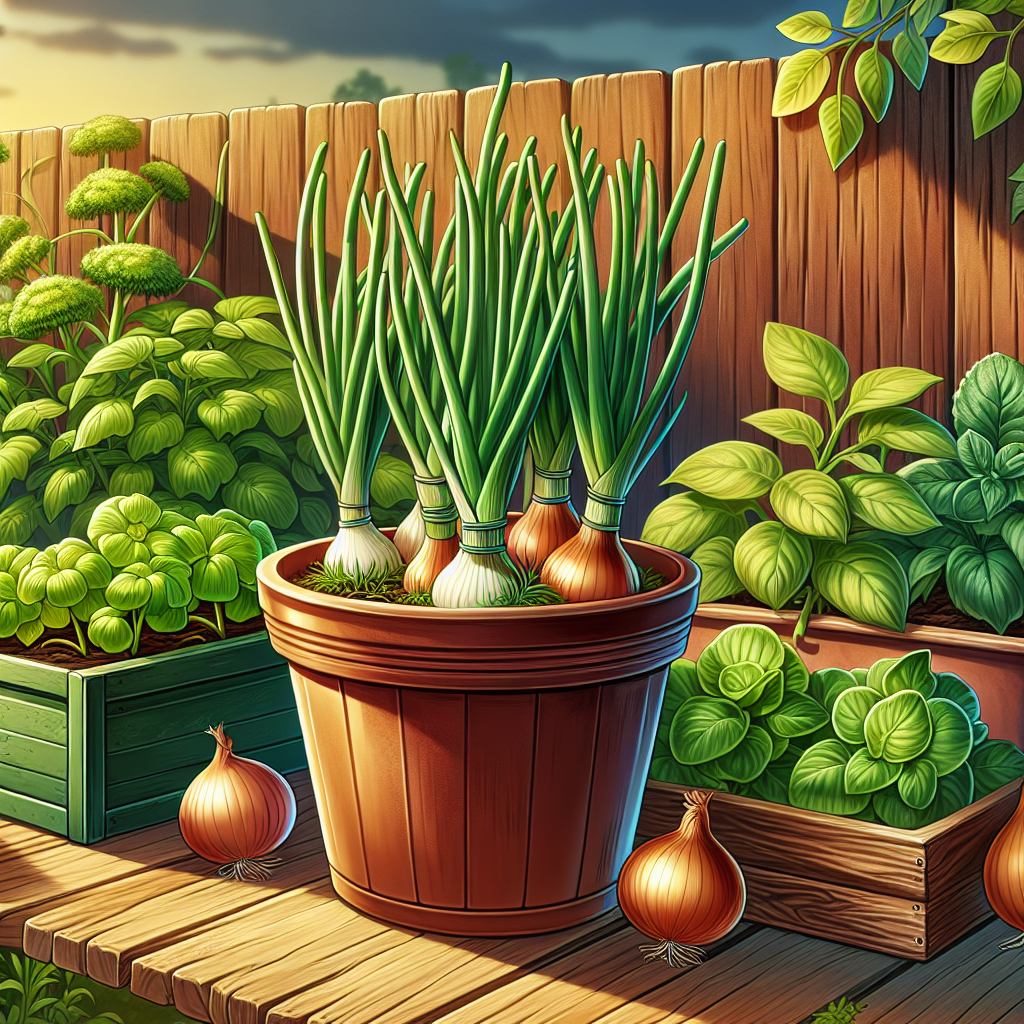Onions are a versatile and popular vegetable that can easily be grown in containers. They are relatively low-maintenance, don’t require a lot of space, and can thrive in various climates. However, like all plants, onions can benefit from having the right companion plants to help them grow and thrive.
Companion planting is a gardening practice where different plants are grown together to benefit each other in some way. Some plants can improve the health and growth of others by repelling pests, providing nutrients, or improving soil quality. When it comes to growing onions in containers, choosing the right companion plants can help promote healthier growth and higher yields.
Here are some of the best companion plants for onions in containers:
1. Carrots: Carrots are one of the best companion plants for onions because they have a symbiotic relationship with each other. Carrots help improve the soil structure by loosening it up, making it easier for onions to grow deep roots. Onions, on the other hand, repel carrot fly pests that can damage carrot crops. Planting carrots next to your onions in containers can help both crops thrive.
2. Lettuce: Lettuce is another good companion plant for onions because they have similar growing requirements and don’t compete for space or nutrients. Lettuce has shallow roots that won’t interfere with the deeper roots of onions, making them a perfect match for container gardening. Plus, lettuce provides shade for the soil, helping to keep onion bulbs cool and preventing them from getting sunburned.
3. Cilantro: Cilantro is a great herb to plant alongside onions because it helps repel aphids and spider mites that can damage onion crops. Cilantro also attracts beneficial insects like ladybugs and lacewings that feed on onion pests. Plus, cilantro adds flavor to your dishes and makes a colorful addition to your container garden.
4. Peas: Peas are nitrogen-fixing legumes that help improve soil fertility by adding nitrogen back into the soil as they grow. Onions benefit from this extra boost of nutrients, which helps promote healthy leafy growth and bigger bulbs. Planting peas next to your onions also helps deter onion pests like thrips and onion maggots.
5. Spinach: Spinach is a cool-season crop that grows well alongside onions in containers because they have similar watering needs and growing requirements. Spinach provides ground cover for your onion bulbs while keeping weeds at bay, which can compete with onions for nutrients and water.
6. Chives: Chives are part of the allium family like onions and have similar pest-repelling properties that benefit onion crops. Planting chives next to your onions in containers can help deter aphids, thrips, and other insect pests that commonly attack onion plants.
7. Nasturtiums: Nasturtiums are edible flowers that not only add beauty to your container garden but also protect your onions from pests like aphids, whiteflies, and cabbage worms. Nasturtiums have a strong scent that repels these insects while attracting beneficial pollinators like bees and butterflies.
8. Radishes: Radishes are fast-growing root vegetables that help break up compacted soil around your onion bulbs while deterring onion flies with their strong scent. Planting radishes next to your onions in containers can help aerate the soil and improve drainage while providing an early harvest before your onions reach maturity.
When planning your container garden with companion plants for onions, consider factors like light requirements, watering needs, temperature preferences, and growth habits of each plant to ensure they will grow well together in harmony.
In conclusion…
Growing companion plants alongside onions in containers can provide numerous benefits such as pest control, improved soil fertility, enhanced nutrient uptake, weed suppression, increased yield potential,sustainabilityefficiencyhealthiergrowthandbiodiversityTo maximize these benefits,grow complementary plants close together usingintercroppingtechniquesthatpromoteplant interactionsandsynergiesWhile choosingcompanionplantsforonionsincontainersconsiderplantsthathavecomplementarygrowingrequirementsandsimilarpreferencesthatcanthriveinthetightconfinesofapottedenvironmentExperimentwithdifferentcombinationstofindwhatworksbestforyourcontainergardenand enjoyhealthyandabundantharvestsyearafteryear!













